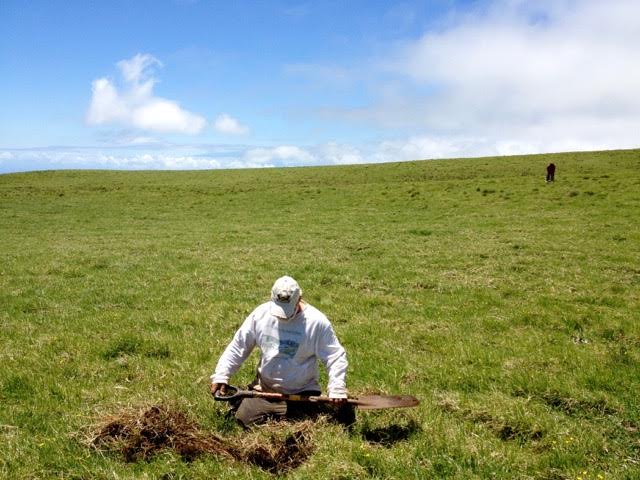
From left, Berkeley Lab researchers Eric Dubinsky, Shi Wang (on left), and Neslihan Tas contributed to the Earth Microbiome Project.
In the Earth Microbiome Project, an extensive global team collected more than 27,000 samples from numerous, diverse environments around the globe. They analyzed the unique collections of microbes – the microbiomes – living in each sample to generate the first reference database of bacteria colonizing the planet. Thanks to newly standardized protocols, original analytical methods and open data-sharing, the project will continue to grow and improve as new data are added.
The paper describing this effort, published November 1 in Nature, was co-authored by more than 300 researchers at more than 160 institutions worldwide. The project is co-led by researchers at UC San Diego, Pacific Northwest National Laboratory, University of Chicago, and Argonne National Laboratory.
Lawrence Berkeley National Laboratory researchers Eric Dubinsky, Neslihan Tas, and Shi Wang contributed to the study as members of the Earth Microbiome Project Consortium. The Earth Microbiome Project is a global archive of microbial community DNA sequence information to explore patterns of microbial diversity at the planetary scale.
Dubinsky contributed 124 soil samples and metadata he collected from Hawaii. The samples span the dramatic range of rainfall conditions found in Hawaii spanning arid (260 mm/year) to very wet (3540 mm/year). Tas contributed samples to study the impact of wildfires on soil microbial communities in Alaska.
Wang was in charge of managing, receiving, and processing samples from more than 25 collaborators in countries including New Zealand, Brazil, Mexico, Canada, and China. She processed and extracted DNA using a high-throughput method from 2,800 Panama soils, about 670 samples from the Cryocarbs3 project, and about 700 soils from USGS.
For the full news release at UC San Diego, click here.
